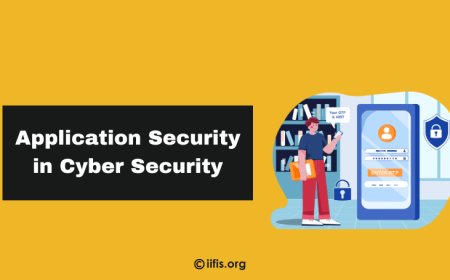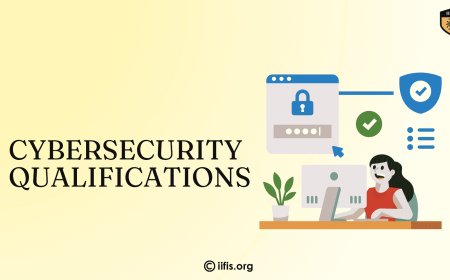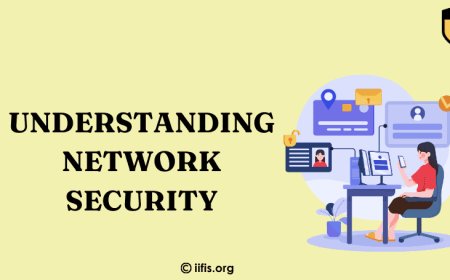Top Skills for Information Security Analysts
Discover the top skills required for Information Security Analysts, including cybersecurity expertise, risk management, ethical hacking, and data protection strategies to safeguard organizations from threats.
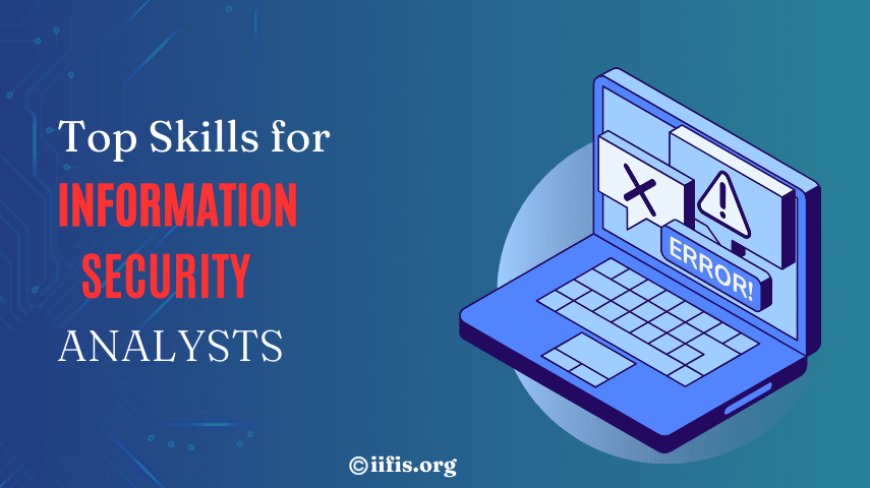
As technology becomes more integrated into our daily lives, protecting sensitive data has become a critical responsibility for businesses and organizations. Information Security Analysts play a key role in ensuring systems, networks, and data remain secure from cyber threats.To excel in this field, analysts need more than just technical knowledge they must possess a combination of problem-solving abilities, an understanding of cybersecurity tools, and a proactive mindset. Whether you’re a student exploring career paths or a professional aiming to build your skills, understanding the key competencies required for this role is essential.In this blog, we’ll break down the top skills that make a successful Information Security Analyst, helping you understand the tools, techniques, and mindset needed to excel in this growing field.
Why Are Information Security Analysts Crucial in the Digital Era?
As technology evolves, the risk of cyberattacks grows, affecting businesses, governments, and individuals alike. Cybercriminals are finding new ways to exploit vulnerabilities, making the role of Information Security Analysts more important than ever.
Increasing Cyber Threats
The frequency and complexity of cyberattacks, such as ransomware, phishing, and data breaches, have risen significantly. Organizations need experts to identify risks, defend against attacks, and minimize damage when incidents occur.
Meeting Data Protection Regulations
Laws like GDPR (General Data Protection Regulation) and CCPA (California Consumer Privacy Act) require businesses to safeguard personal data. Non-compliance can result in heavy fines. Information Security Analysts ensure systems meet these legal requirements, protecting both the organization and its customers.
Protecting Sensitive Information
From financial data to health records, analysts are responsible for creating strategies to keep sensitive information safe. They monitor networks, update security protocols, and respond to threats to maintain trust and prevent data loss.
In an era where cybersecurity is a top concern, Information Security Analysts play a key role in keeping systems secure, making them essential for businesses and organizations worldwide.
Top Skills Every Information Security Analyst Needs
To excel as an Information Security Analyst, you need a mix of technical knowledge, analytical thinking, and strong communication skills. Here’s a breakdown of the essential skills for this role:
Technical Skills
-
Knowledge of Cybersecurity Tools: Familiarity with tools like firewalls, intrusion detection systems, and antivirus software is crucial for detecting and mitigating threats.
-
Understanding of Network Security: A strong grasp of how networks operate and how to protect them against unauthorized access is key.
-
Incident Response and Recovery: Skills in handling security breaches, containing damage, and restoring systems are critical.
-
Programming and Scripting: Basic knowledge of languages like Python, Java, or Bash can help automate security tasks and analyze threats.
Analytical Skills
-
Problem-Solving Abilities: Being able to identify, assess, and resolve security vulnerabilities is an everyday part of the job.
-
Attention to Detail: Cyber threats can be subtle; spotting anomalies requires a meticulous approach.
-
Risk Assessment: Evaluating potential risks and prioritizing actions to reduce them is a core responsibility.
Soft Skills
-
Communication Skills: Explaining complex security issues in simple terms to colleagues or stakeholders is essential.
-
Team Collaboration: Working with IT teams, management, and external partners to implement security measures requires good interpersonal skills.
-
Adaptability: Cybersecurity is always changing, so staying open to learning new tools and techniques is important.
By mastering these skills, you can effectively protect organizations from cyber threats and build a successful career in information security.
Core Technical Skills for Information Security Analysts
Information Security Analysts need a solid foundation in these technical skills:
1. Security Tools and Technologies
-
Proficient in using firewalls, IDS/IPS, antivirus software, and SIEM tools to monitor and block threats.
2. Network Security Expertise
-
Understanding of TCP/IP, DNS, and VPNs to secure communication and prevent unauthorized access.
3. Threat Management
-
Skilled in analyzing malware, using threat intelligence, and understanding attack methods like phishing or SQL injection.
4. Incident Response and Forensics
-
Responding to breaches, isolating threats, restoring systems, and conducting investigations to prevent future incidents.
5. Encryption and Cryptography
-
Securing data with encryption protocols like SSL/TLS and understanding cryptographic algorithms for data protection.
These skills are essential for protecting systems, detecting vulnerabilities, and managing cyber threats effectively.
Analytical and Problem-Solving Skills for Information Security Analysts
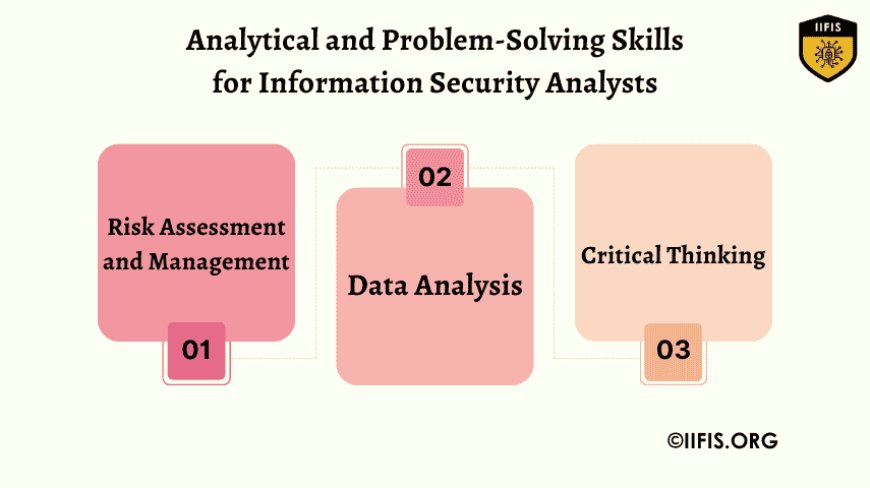
Strong analytical and problem-solving skills are essential for Information Security Analysts to identify and address security challenges effectively. Key areas include:
1. Risk Assessment and Management
-
Evaluating potential security risks by identifying weaknesses in systems or processes.
-
Prioritizing risks based on their impact and developing strategies to mitigate them.
2. Data Analysis
-
Reviewing system logs, traffic data, and alerts to identify unusual patterns or suspicious activities.
-
Using data-driven insights to detect threats and respond promptly to prevent breaches.
3. Critical Thinking
-
Anticipating possible attack methods and devising proactive measures to strengthen defenses.
-
Solving complex security issues by breaking them into manageable parts and finding practical solutions.
These skills help analysts protect systems, prevent threats, and ensure a secure environment for data and networks.
Programming and Scripting Knowledge
Coding is an important skill for Information Security Analysts as it helps automate tasks, assess vulnerabilities, and create custom security solutions. Key languages include:
-
Python: Widely used for scripting, automation, and analyzing malware.
-
Java: Important for securing web applications and understanding software vulnerabilities.
-
PowerShell: Used for managing and securing Windows environments.
-
C++: Helpful for analyzing low-level code and understanding system exploits.
Learning these languages equips security professionals to tackle real-world challenges effectively.
Soft Skills for Information Security Analysts
While technical expertise is essential, soft skills are equally important for excelling in this role:
1. Communication Skills
-
Explaining security issues in a simple way to non-technical stakeholders.
-
Writing clear reports and documenting security policies and incidents.
2. Collaboration
-
Coordinating with IT teams, developers, and management to implement security solutions.
3. Adaptability
-
Keeping up with evolving threats and learning new tools and technologies.
4. Ethical Mindset
-
Maintaining strict confidentiality and adhering to ethical standards while dealing with sensitive data.
A balance of programming knowledge and soft skills enables security analysts to protect systems and communicate effectively within organizations.
Certifications to Build Key Skills
Certifications can help Information Security Analysts develop and validate their expertise. Here are some valuable certifications:
1. CISSP (Certified Information Systems Security Professional)
-
Focuses on advanced topics like risk management, security architecture, and incident response.
-
Ideal for professionals aiming for leadership roles in cybersecurity.
2. CEH (Certified Ethical Hacker)
-
Covers techniques used by hackers to help identify vulnerabilities and strengthen defenses.
-
Great for those interested in penetration testing or ethical hacking.
3. CompTIA Security+
-
Entry-level certification that provides a solid foundation in network security, threats, and risk management.
-
Suitable for beginners starting their cybersecurity career.
4. CISM (Certified Information Security Manager)
-
Focused on managing and governing information security systems in organizations.
-
Suitable for professionals overseeing security programs.
Emerging Skills for Future Success
The cybersecurity field is constantly evolving, and acquiring emerging skills is essential for staying competitive:
1. Cloud Security
-
Understanding security tools and techniques for cloud platforms like AWS, Azure, and GCP is increasingly important as organizations move to the cloud.
2. AI and Machine Learning
-
Learning how artificial intelligence is used to detect patterns in cybersecurity threats can help professionals stay ahead of attackers.
3. DevSecOps
-
Integrating security into the development process ensures software and systems are secure from the start.
4. Blockchain Technology
-
Understanding how blockchain can be applied to secure data and transactions is an emerging skill with growing importance.
By pursuing certifications and gaining knowledge in these areas, Information Security Analysts can build strong, future-proof careers.
How to Develop These Skills
-
Training Programs and Online Courses:
-
Learn cybersecurity and certifications like CISSP or CEH through platforms like Coursera and Udemy.
-
Hands-On Experience and Internships:
-
Gain practical skills by interning with IT teams or practicing tools like penetration testing and malware analysis.
-
Networking with Professionals:
-
Connect with experts through LinkedIn, Reddit, and industry events to stay updated and gain insights.
- Join Cybersecurity Communities:
-
Engage with platforms like OWASP and Hack The Box for challenges, resources, and peer learning.
A mix of learning, practice, and networking is key to success in cybersecurity.
Information Security Analysts need a mix of technical skills, problem-solving abilities, and communication expertise to safeguard systems and respond to cyber threats. Skills like using security tools, assessing risks, programming, and effective communication are essential for success in this role. Continuous learning is important to keep up with new threats and technologies in the cybersecurity field.
Institutes like IIFIS (International Institute for Information Security) provide valuable training and certifications to help professionals stay updated and skilled. As the role of cybersecurity professionals continues to grow, staying curious, adaptable, and committed to learning ensures a successful and meaningful career in protecting the digital world.



